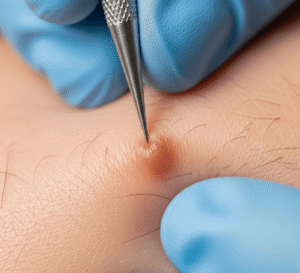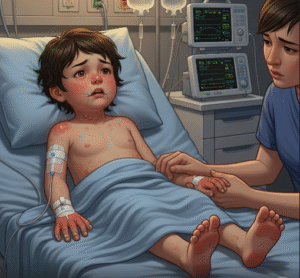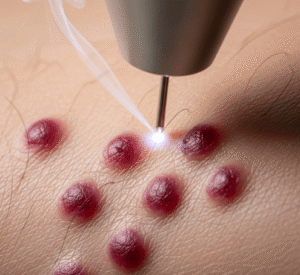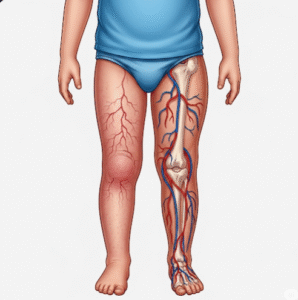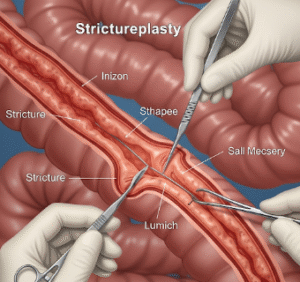Overview
Tetanus is a serious bacterial infection caused by Clostridium tetani, which affects the nervous system and leads to muscle stiffness and spasms. Commonly known as “lockjaw,” tetanus can interfere with breathing, swallowing, and other vital functions. The bacteria usually enter the body through puncture wounds, cuts, or burns that come into contact with contaminated soil or objects. South Korea provides comprehensive preventive and treatment measures, including vaccinations, wound care, and intensive medical support, ensuring that both residents and visitors receive effective protection and management for tetanus.
What is Tetanus?
Tetanus is an acute infectious disease caused by toxins produced by Clostridium tetani. These toxins affect the nervous system, resulting in painful muscle contractions, typically starting with the jaw and neck muscles. Without prompt treatment, tetanus can progress to generalized muscle stiffness, severe spasms, and complications that may be life-threatening. While rare in countries with strong vaccination programs, it remains a medical emergency wherever immunization coverage is incomplete.
Symptoms
The symptoms of tetanus generally appear between 3 and 21 days after exposure, depending on the location and severity of the wound. They may include:
- Stiffness and pain in the jaw (lockjaw)
- Difficulty swallowing
- Muscle rigidity in the neck, shoulders, and abdomen
- Painful, involuntary muscle spasms, often triggered by light, sound, or touch
- Fever, sweating, and elevated blood pressure
- Rapid heart rate
- Pain and stiffness in the back and limbs
- In severe cases, spasms may impair breathing and cause life-threatening complications
Early recognition of these symptoms is critical, as tetanus can progress quickly without medical intervention.
Causes
Tetanus is caused by the bacterium Clostridium tetani, which is commonly found in soil, dust, and animal feces. The bacteria produce spores that can survive in the environment for long periods and enter the body through:
- Puncture wounds from nails, knives, or splinters
- Burns, cuts, or surgical wounds
- Animal bites or scratches
- Injection sites, particularly with non-sterile needles
- Compound fractures or deep tissue injuries
Once inside the body, the bacteria release a neurotoxin called tetanospasmin, which interferes with normal nerve signaling and leads to muscle rigidity and spasms.
Risk Factors
Certain conditions increase the likelihood of developing tetanus:
- Lack of vaccination or incomplete immunization
- Deep or contaminated wounds
- Chronic wounds or skin infections
- Diabetes or other conditions that impair wound healing
- Older age, due to waning immunity
- Intravenous drug use with non-sterile needles
- Injuries sustained in environments with contaminated soil
Complications
If untreated, tetanus can lead to severe and potentially fatal complications:
- Respiratory failure due to spasms of the chest muscles
- Fractures from severe muscle contractions
- High blood pressure and cardiac arrhythmias
- Secondary infections from prolonged hospitalization
- Aspiration pneumonia caused by difficulty swallowing
- Permanent neurological damage in rare cases
- Death, particularly in unvaccinated individuals or those without access to intensive care
Prevention
Tetanus is highly preventable through vaccination and proper wound care:
- Vaccination: Routine immunization with the DTaP (for children) or Tdap/Td (for adults) series provides long-lasting protection. Booster doses are recommended every 10 years.
- Wound hygiene: Clean all cuts, punctures, and burns immediately with soap and water.
- Medical attention: Seek prompt evaluation for deep or contaminated wounds, especially if vaccination status is uncertain.
- Protective measures: Use gloves, footwear, and proper tools to reduce the risk of injuries that may expose the body to Clostridium tetani.
Treatment Options in Korea
Korea offers advanced treatment for tetanus, combining immunological, pharmacological, and supportive therapies:
1. Immediate Medical Care
- Tetanus immune globulin (TIG): Administered to neutralize the toxin in unvaccinated or partially vaccinated patients.
- Wound debridement: Surgical cleaning of contaminated wounds to remove bacterial spores.
2. Medications
- Antibiotics: Such as metronidazole or penicillin to eliminate bacterial infection.
- Muscle relaxants: Drugs like diazepam reduce muscle spasms and rigidity.
- Pain management: Analgesics help alleviate discomfort associated with severe spasms.
3. Intensive Care
- Mechanical ventilation may be required if respiratory muscles are affected.
- Continuous monitoring of heart rate, blood pressure, and oxygen levels.
- Intravenous fluids and nutritional support as needed.
4. Post-treatment Care
- Rehabilitation to restore muscle function and mobility after recovery
- Follow-up immunization to ensure long-term protection
- Education on wound prevention and recognition of early symptoms
Cost and Hospital Care
Tetanus treatment in Korea can vary in cost depending on severity and length of hospitalization. Advanced hospitals provide multidisciplinary care, including emergency immunization, intensive care units, and specialized infectious disease teams. With timely intervention, patients in Korea have a high chance of full recovery, highlighting the country’s expertise in managing both preventive and acute care for tetanus.



